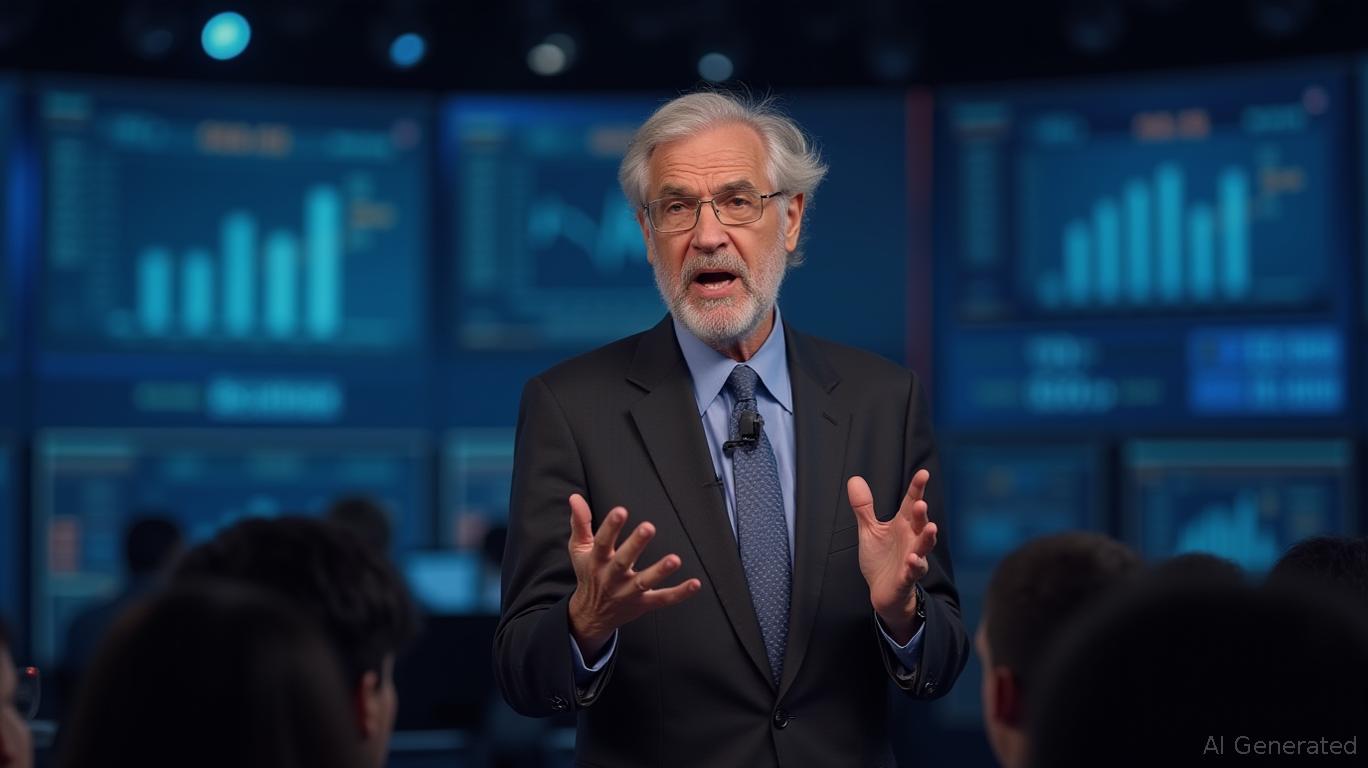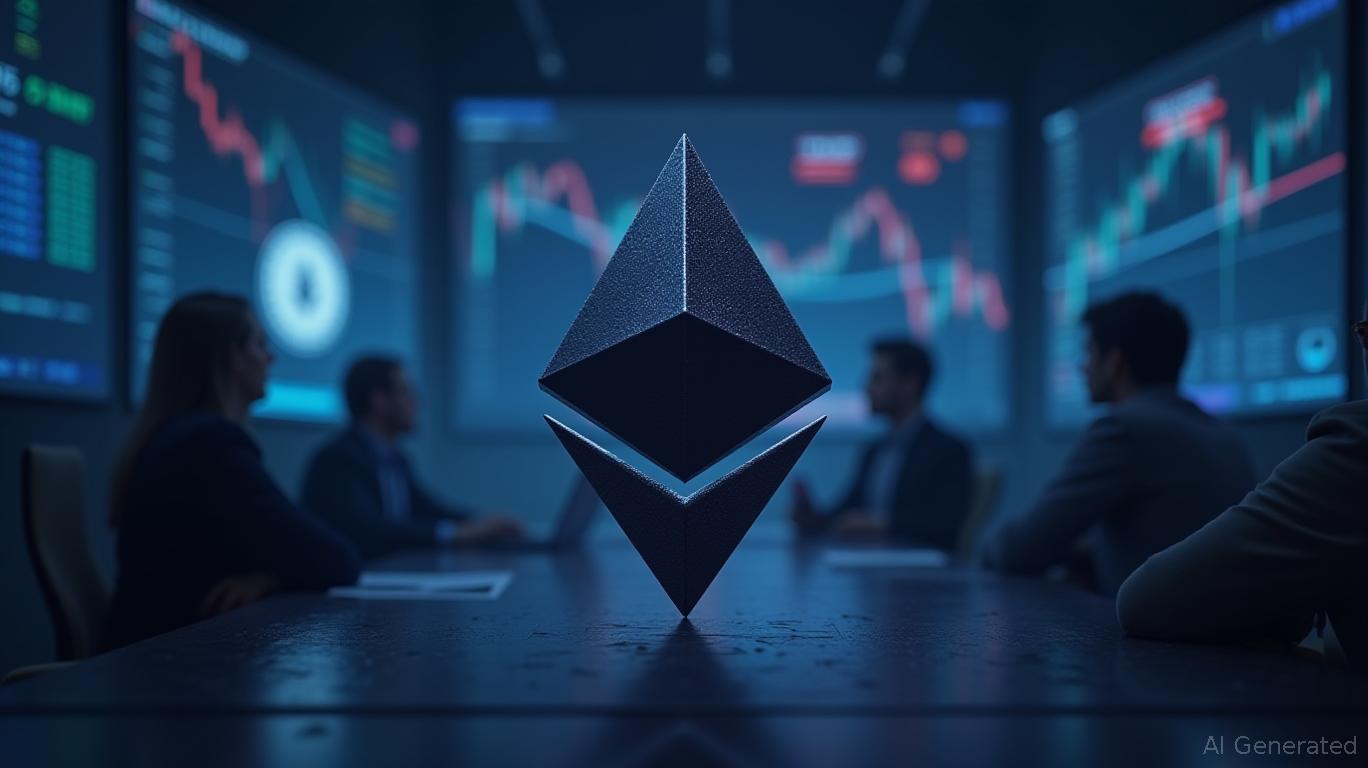Krugman Cautions That AI-Fueled Expansion May Widen Inequality and Deepen Economic Disparities
- Nobel laureate Paul Krugman warns the U.S. economy faces "abnormal" challenges, including AI-driven inequality, stagnant employment, and deepening polarization. - He highlights three key issues: sectoral divides from AI growth, an "employment freeze" with limited job access, and K-shaped growth favoring high-income groups. - Krugman criticizes delayed data releases and urges policy reforms to address systemic imbalances, as global trade tensions and Trump-era tariffs complicate economic stability. - His
Paul Krugman, a Nobel laureate in economics, has delivered a sobering evaluation of the U.S. economy, characterizing it as "unusual in several ways" due to intensifying polarization, stagnant job growth, and widening wealth gaps, as reported by a
Krugman identified three major factors influencing the present economic environment. First, he observed a pronounced split between industries: sectors powered by AI are advancing rapidly, while others are lagging behind. This split, he contends, intensifies both regional and professional disparities, leaving many workers with few options to adjust. Second, he described a situation of "frozen employment," where job hunters consistently struggle to find positions even though mass layoffs are not occurring. Third, Krugman highlighted a "K-shaped recovery," where investments driven by AI primarily benefit the wealthy and large companies, while those with moderate or lower incomes face higher expenses and limited access to economic improvements.

The economist stressed that these developments are not just statistical outliers but reflect deeper structural problems. "The U.S. economy is departing from typical patterns in multiple aspects," he noted, warning that policymakers may be making decisions with "incomplete information" in the absence of up-to-date data. His perspective echoes wider worries about inequality fueled by AI, as discussed in recent reports, including
Krugman's cautions arise against a backdrop of worldwide economic instability, such as trade disputes between the U.S. and China, Argentina's divisive elections, and tariffs from the Trump administration that have altered global trade. Nevertheless, his primary concern is with domestic structural issues, calling for a reassessment of policies that overlook the uneven benefits of AI-driven growth.
As discussions over economic policy grow more heated, Krugman's insights highlight the urgent need for focused measures to close the growing divide between technological advancement and shared prosperity.
Disclaimer: The content of this article solely reflects the author's opinion and does not represent the platform in any capacity. This article is not intended to serve as a reference for making investment decisions.
You may also like
Bitcoin Updates: University of Tampa Introduces Bitcoin Course Mirroring Business Cryptocurrency Developments
- The University of Tampa will launch a Bitcoin course in 2025, reflecting academia's growing focus on cryptocurrency education. - Tesla's $1.315B Bitcoin holdings demonstrate corporate adoption, influencing academic programs on digital assets. - Ethereum's technical advancements and PayPal's PYUSD integration showcase blockchain's expanding financial applications. - Global collaborations, like Chiang Mai University's IBM partnership, underscore tech-driven education trends.

Ethereum News Update: SharpLink’s Ethereum-Centric Approach Generates $23 Million in Staking Profits, Doubles Shareholder Assets
- SharpLink Gaming boosts ETH holdings to 859,853, valued at $3.5B, via strategic accumulation and staking rewards. - $76.5M capital raise funds ETH purchases below raise price, generating $23M in staking yields since June 2025. - ETH Concentration metric doubles to 4.0, reflecting institutional crypto adoption and shareholder value focus. - As public entity with 601K native ETH and 258K staked ETH, SharpLink sets crypto treasury benchmark with transparent metrics.

U.S.-China Agreement Prevents Tariff Increase, Halts Restrictions on Rare Earths
- U.S.-China officials secured a framework to delay 100% tariffs and suspend China's rare earth export curbs, averting supply chain risks for U.S. tech/defense sectors. - The deal, negotiated in Malaysia, includes resuming Chinese soybean purchases and sets the stage for a potential Trump-Xi meeting at the APEC summit. - China will delay rare earth restrictions for a year while policy is reviewed, easing pressure on U.S. firms like Boeing and Tesla reliant on Chinese materials. - Analysts note the agreemen

Ethereum News Update: Security Concerns Arise for Ethereum's Layer 2 Solutions While Solana Attracts Increased Institutional Interest
- Solana co-founder Anatoly Yakovenko criticized Ethereum L2s for lacking mainnet-level security, sparking debates over centralization risks and technical vulnerabilities in scaling solutions. - Fidelity added Solana to its platforms, reflecting growing institutional adoption, while Ethereum's L2 expansion faces scrutiny over liquidity fragmentation and L1 staker revenue dilution. - Market sentiment diverges: Ethereum sees whale accumulation, while Solana whales distribute large holdings, signaling contras
